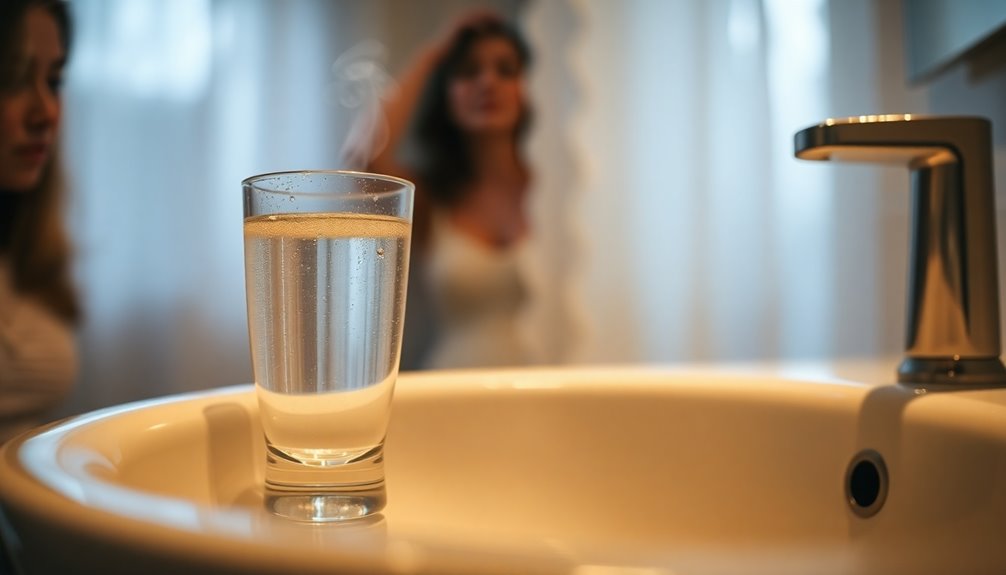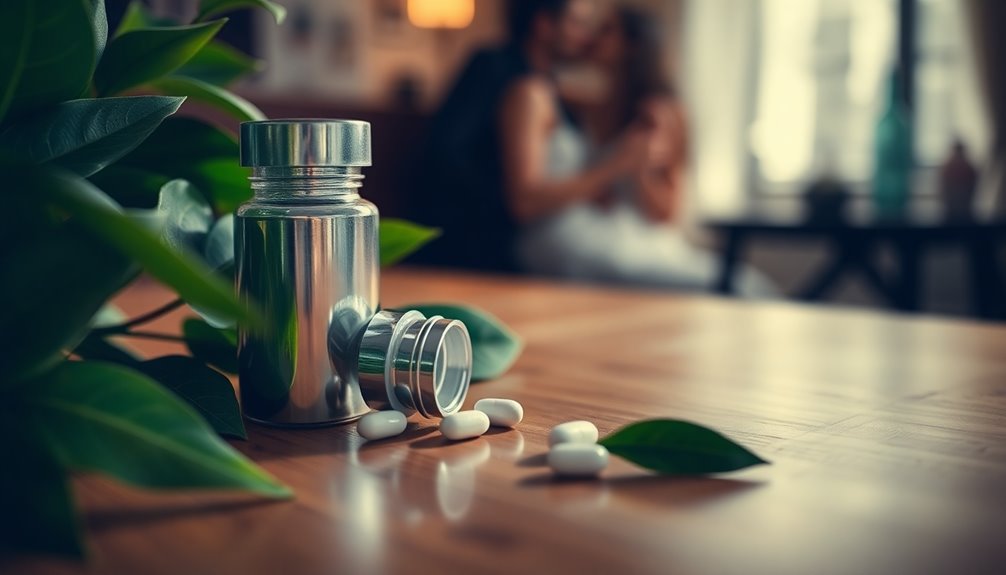If you feel a burning sensation when you pee after sex, it could be due to several reasons. Common causes include urinary tract infections (UTIs), sexually transmitted infections (STIs), or irritation from lack of lubrication. Allergies to lubricants or condoms can also play a role. Insufficient hydration or irritants like scented soaps may worsen the discomfort. It's vital to watch for any unusual discharge or persistent symptoms, as these can indicate more serious issues. Taking preventive measures can help, so keep that in mind as you explore ways to find relief.
Key Takeaways
- Urinary Tract Infections (UTIs) can develop after sex, causing burning during urination due to bacteria entering the urinary tract.
- Sexually Transmitted Infections (STIs) like chlamydia or gonorrhea may lead to urethral inflammation, resulting in painful urination.
- Lack of Lubrication during sex can cause micro-tears in genital tissue, leading to irritation and a burning sensation when urinating.
- Chemical Irritants from scented lubricants, soaps, or spermicides may trigger allergic reactions, causing discomfort after sexual activity.
- Hormonal Changes, particularly during menopause, can lead to vaginal dryness, increasing friction and discomfort during and after sex.
Common Causes of Burning
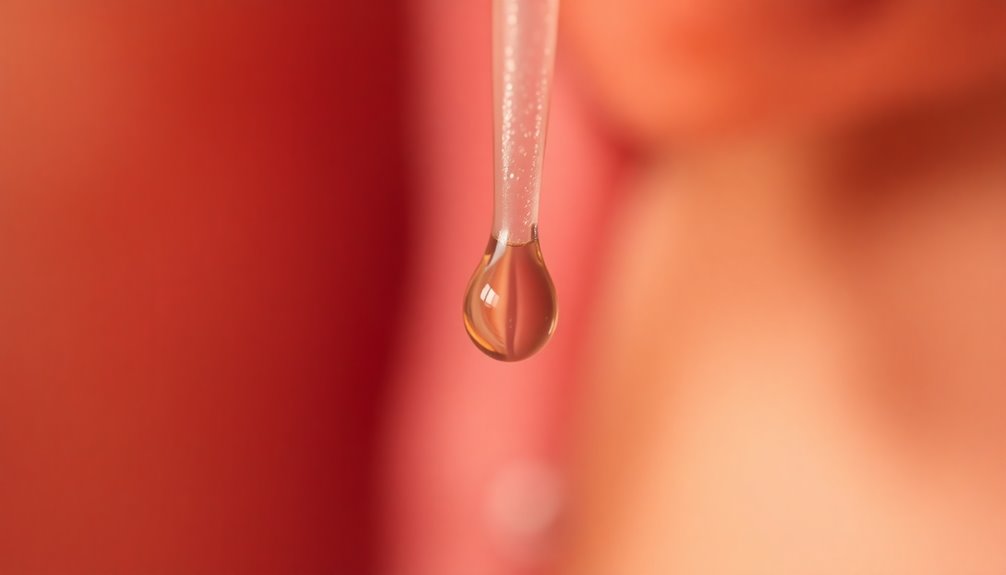
When you experience burning during urination after sex, it can be uncomfortable and concerning. This burning sensation often stems from urinary tract infections (UTIs), where bacteria enter the urinary tract, causing painful urination.
Additionally, sexually transmitted infections (STIs) like chlamydia and gonorrhea can lead to inflammation of the urethra, resulting in discomfort.
If you've had a lack of lubrication during sexual activity, micro-tears in the vaginal or penile tissue may occur, leading to irritation that burns when urine touches these areas.
Allergic reactions to condoms, lubricants, or spermicides can also trigger irritation, especially if these products contain fragrances or irritants.
Hormonal changes, such as those during menopause, can cause vaginal dryness, increasing friction and painful urination after sex.
Symptoms to Watch For
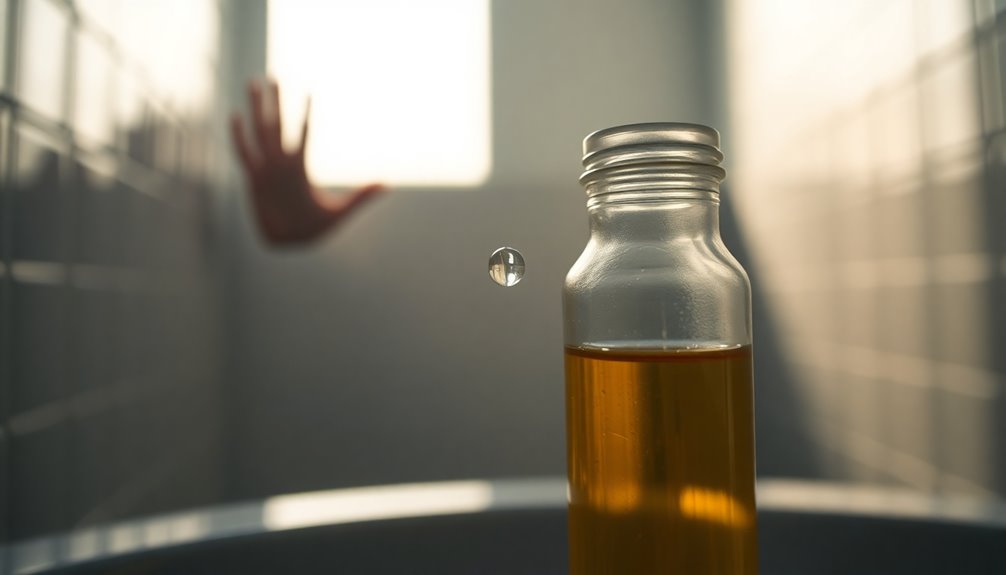
Experiencing a burning sensation during urination after sex can signal an underlying issue, so it's important to pay attention to accompanying symptoms.
Watch for increased frequency and urgency to urinate, which may indicate a urinary tract infection (UTI). Unusual discharge, changes in urine color, or pain in your lower abdomen can also suggest an infection.
If you have persistent burning that lasts more than a couple of days, consider seeking a medical evaluation to rule out STIs or other conditions.
Additionally, if you notice fever, chills, blood in your urine, or a strong odor, consult a healthcare provider immediately, as these symptoms may indicate a more serious infection requiring prompt treatment.
Prevention Techniques
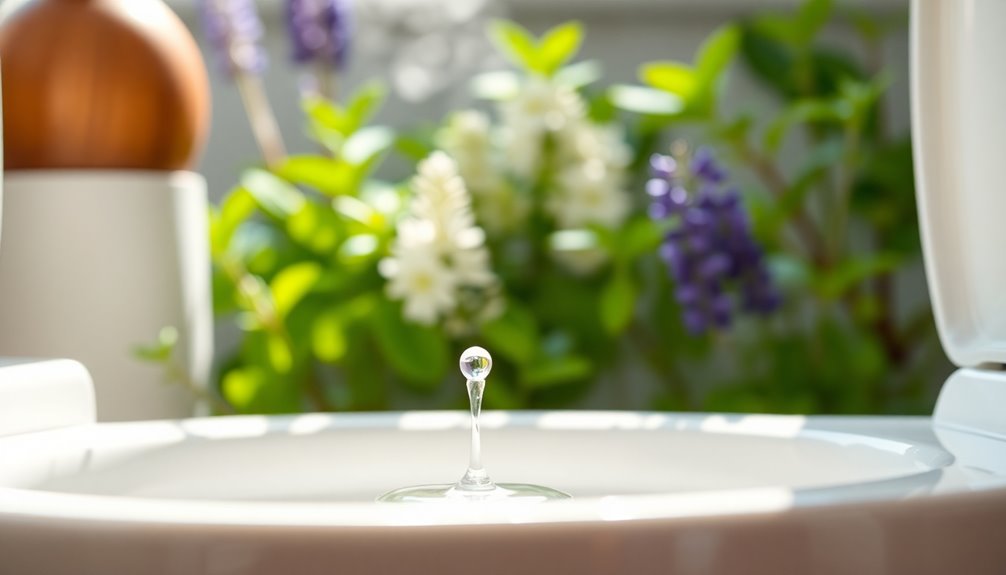
To prevent burning when peeing after sex, it's essential to adopt a few simple techniques.
Start by urinating before and after sex to help flush out bacteria and reduce the risk of urinary tract infections. Staying well-hydrated dilutes your urine, which can minimize irritation and discomfort post-intercourse.
Using water-based lubricants during sex can also help reduce friction and prevent micro-tears in your genital tissues, easing any potential burning sensation.
Avoid irritants like scented soaps and certain douches, as these can trigger allergic reactions and irritation.
Finally, practicing safe sex by using condoms protects against sexually transmitted infections, which can contribute to painful urination.
Prioritizing these steps will support your sexual health and comfort.
Treatment Options Available
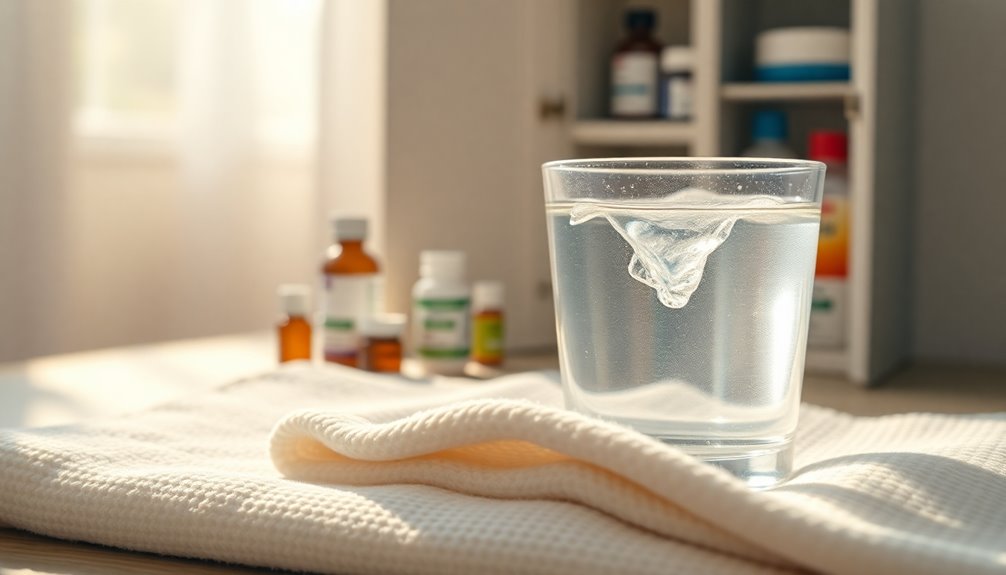
When you're experiencing burning during urination after sex, several treatment options can help.
Medical treatments like antibiotics can address infections, while home remedies such as drinking cranberry juice may aid in prevention.
It's important to explore both routes to find what works best for you.
Medical Treatments Overview
Burning during urination after sex can be uncomfortable and concerning, but various medical treatments are available to address the underlying causes.
If you suspect a urinary tract infection (UTI) or sexually transmitted infection (STI), a healthcare provider may prescribe antibiotics based on urine tests or swabs.
For immediate relief, over-the-counter pain relief medications like ibuprofen or acetaminophen can help ease the burning sensation.
Topical creams might be recommended for soothing irritation from friction-related injuries or allergic reactions.
If you experience recurrent issues due to vaginal dryness, especially post-menopause, hormonal treatments may be an option.
Regular consultations with your healthcare professional can help tailor these medical treatments to your specific symptoms and needs.
Home Remedies Suggestions
If you're experiencing discomfort after sex, several home remedies can help alleviate burning during urination.
First, prioritize hydration by drinking plenty of water, which can dilute urine and reduce that burning sensation. You might also consider cranberry juice, as it may prevent urinary tract infections (UTIs) by stopping bacteria from sticking to your urinary tract walls.
For soothing relief, applying a warm compress to your lower abdomen can ease discomfort. Over-the-counter pain relief medications like ibuprofen or acetaminophen can help with pain associated with burning urination.
Finally, using water-based lubricants during intercourse can minimize friction and irritation, potentially preventing post-sex burning sensations.
Implementing these home remedies may lead to a more comfortable experience.
When to Seek Help
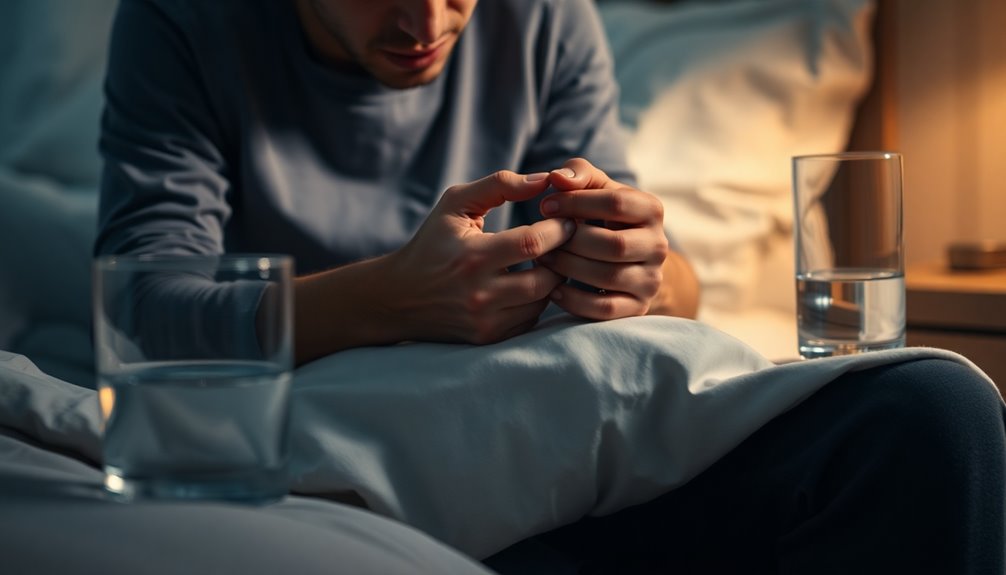
If you're still experiencing burning during urination two days after sex, it's time to reach out to a healthcare provider.
You should also seek help if you notice any unusual discharge or strong odors, as these could signal an underlying issue.
Don't hesitate to get checked—early intervention can make a significant difference.
Persistent Symptoms
Experiencing persistent burning during urination after sex can be concerning, especially when it lasts more than two days. If you notice severe pain, blood in your urine, or fever, it's crucial to seek medical attention. Ignoring these symptoms could lead to complications, including urinary tract infections (UTIs).
| Symptoms | Action | Possible Conditions |
|---|---|---|
| Burning sensation | Consult a healthcare provider | UTI, STIs, genital irritation |
| Severe pain | Seek immediate medical attention | Potential serious infection |
| Fever or chills | Get evaluated promptly | Possible UTI or other issues |
If you're sexually active and face persistent symptoms, don't hesitate to consult a healthcare provider to rule out infections or other underlying conditions.
Unusual Discharge
Persistent symptoms like burning during urination can often be accompanied by unusual discharge, signaling the need for medical evaluation.
If you notice changes in your vaginal discharge—like color, consistency, or odor—it could indicate an infection. A thick, white discharge might suggest a yeast infection, while green or yellow discharge could point to sexually transmitted infections (STIs) such as chlamydia or gonorrhea.
If this unusual discharge comes with itching, burning sensation, or pelvic pain, it's crucial to consult a healthcare provider promptly.
Additionally, if you're experiencing post-coital bleeding alongside unusual discharge, seek medical attention immediately, as it may indicate a more serious condition.
Regular gynecological exams and STI screenings can help catch these issues early.
Importance of Lubrication
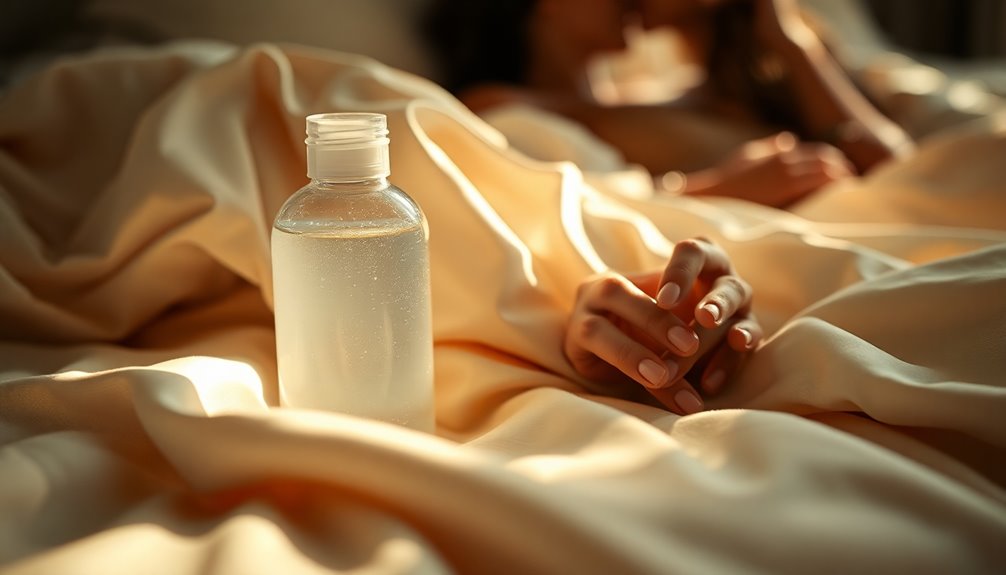
When it comes to sexual activity, using adequate lubrication is essential for both comfort and safety. Proper lubrication reduces friction, which helps prevent micro-tears in the genital tissues that can lead to burning sensations during urination.
Vaginal dryness, often caused by hormonal changes, increases irritation and discomfort after intercourse. That's why it's vital to apply water-based lubricants, especially if you have sensitive skin. These lubricants effectively minimize irritation without triggering allergic reactions.
Regular use enhances comfort and decreases the chances of painful urination post-coitus. Opting for hypoallergenic and fragrance-free lubricants can further reduce the risk of irritation, making your sexual experiences more enjoyable and less likely to result in discomfort afterward.
Allergies and Sensitivities
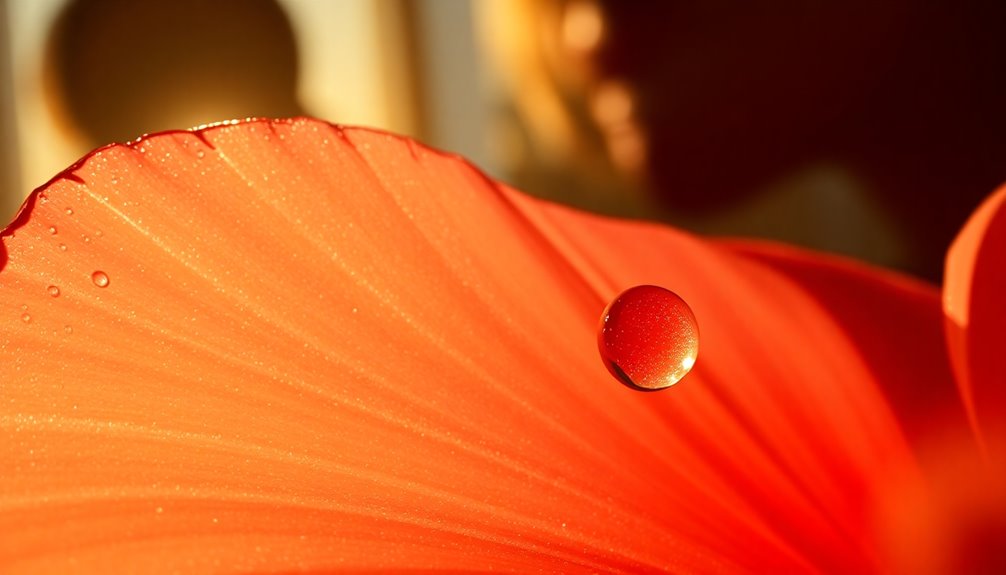
If you have allergies or sensitivities, engaging in sexual activity can sometimes lead to uncomfortable burning during urination.
Allergic reactions to latex condoms can cause a burning sensation, irritating your sensitive genital tissues. Similarly, scented or flavored lubricants may contain irritants that trigger discomfort, leading to that burning feeling afterward.
Rarely, seminal allergies can cause burning, redness, and swelling upon contact, with symptoms appearing minutes later.
Using fragranced soaps or gels for hygiene can exacerbate irritation and contribute to the burning sensation during urination.
To minimize these issues, consider hypoallergenic products that reduce the risk of irritation and discomfort.
Being mindful of these factors can help you enjoy a more comfortable sexual experience.
Hygiene Practices for Relief
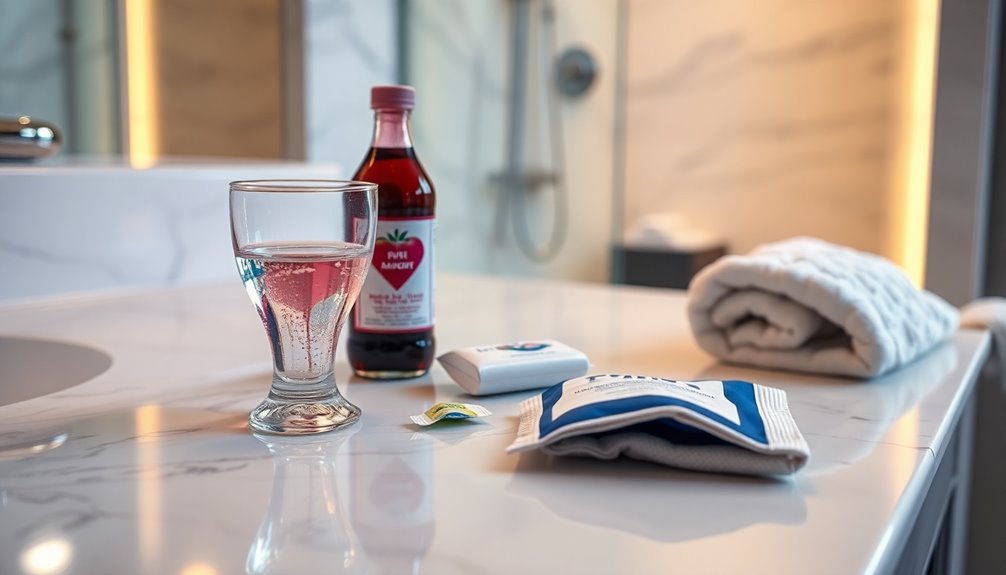
Good hygiene practices can greatly alleviate discomfort and burning during urination after sex. Start by practicing good genital hygiene before and after sexual activity. Urinating immediately after sex helps flush out bacteria, minimizing the chances of a urinary tract infection (UTI). Use unscented soap to clean the area gently, preventing irritation.
| Hygiene Practice | Benefits |
|---|---|
| Urinate after sex | Flushes out bacteria |
| Use unscented soap | Prevents irritation |
| Wear breathable cotton underwear | Reduces moisture and irritation |
| Stay well-hydrated | Dilutes urine to alleviate burning sensations |
Incorporating these habits can considerably reduce the risk of discomfort and improve your overall experience.
Frequently Asked Questions
How Do You Get Rid of Burning After Sex?
To get rid of burning after sex, start by urinating soon after intercourse to flush out any potential irritants.
Staying well-hydrated can dilute your urine, easing discomfort.
Consider using water-based lubricants during sex to reduce friction.
If the burning continues, over-the-counter pain relievers might help temporarily, but don't hesitate to consult a healthcare provider for a thorough evaluation.
Avoid scented soaps and other irritants to prevent further discomfort.
Why Does It Hurt When I Pee After Sex?
Ever wondered why it hurts when you pee after sex?
This discomfort often comes from micro-tears in your genital tissues due to friction or insufficient lubrication.
You might also be dealing with a urinary tract infection, which can cause burning and frequent urination.
Additionally, if you've got an STI or are experiencing vaginal dryness, those factors can contribute to your pain.
It's crucial to pinpoint the cause for effective relief.
How Long Does Stinging After Sex Last?
The stinging sensation after sex can last anywhere from a few minutes to several hours.
If you notice it lingering beyond two days, it's a good idea to seek medical advice, as it could signal an underlying issue.
Staying hydrated and urinating after sex might help alleviate discomfort for some.
If you're experiencing ongoing pain, consider using lubrication to prevent irritation, and consult a healthcare professional if symptoms persist.
How Do I Get Rid of the Burning Feeling After I Pee?
To get rid of that burning feeling after you pee, start by drinking plenty of water to hydrate and dilute your urine.
Over-the-counter pain relievers like ibuprofen can ease the discomfort.
Applying a warm compress to your lower abdomen may also bring relief.
If dryness is an issue, consider using water-based lubricants during activities to reduce friction.
If the burning persists or worsens, it's best to consult a healthcare provider.
Conclusion
To sum up, if you experience burning when you pee after sex, it's often linked to irritation, infections, or allergies. Your body might react to friction or certain lubricants, which can cause discomfort. By staying hydrated, practicing good hygiene, and using appropriate lubrication, you can greatly reduce the likelihood of this issue. If the burning persists, don't hesitate to seek medical advice, as it could be a sign of an infection that needs treatment. Your comfort matters!

